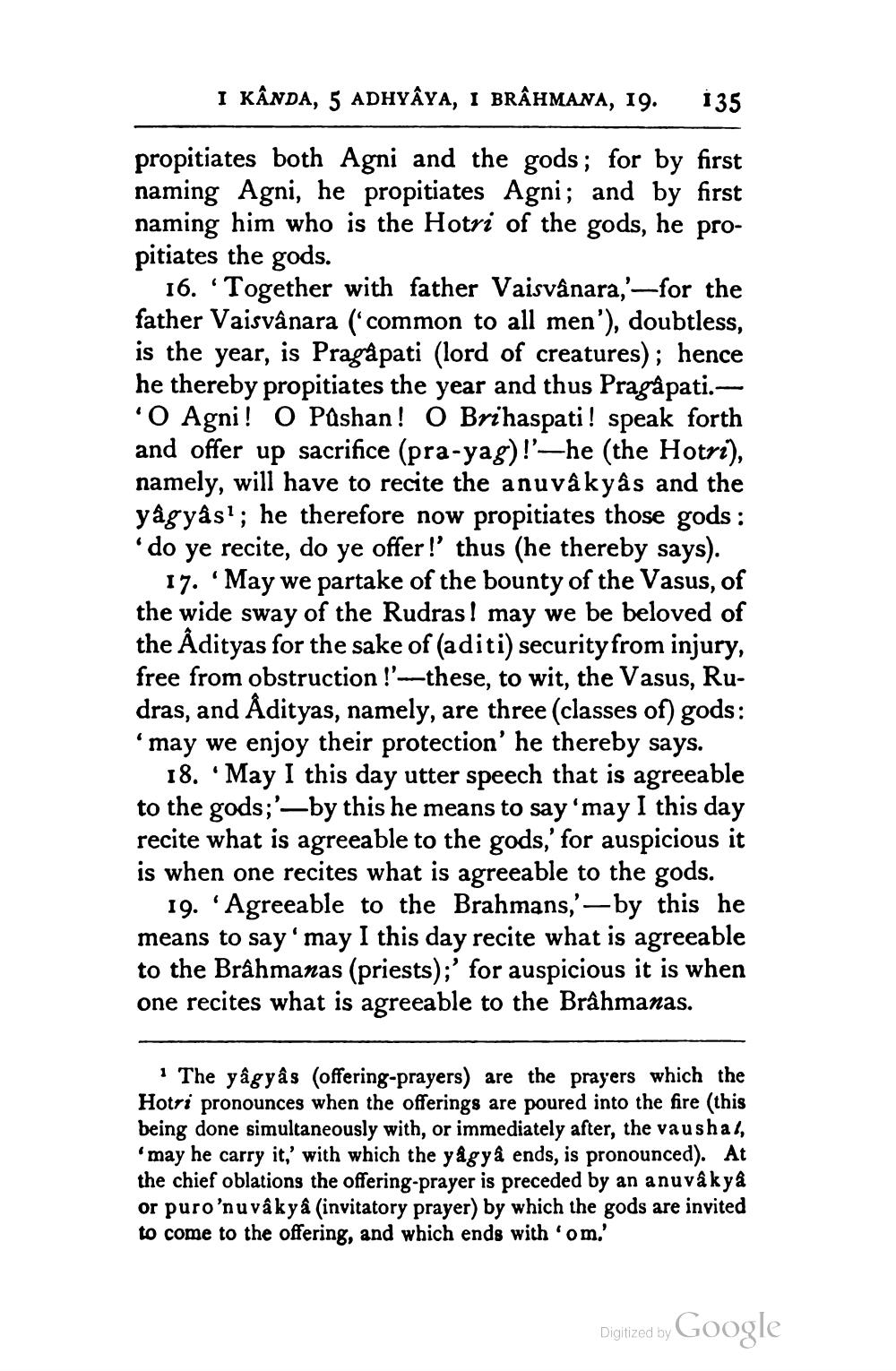________________
I KÂNDA, 5 ADHYÂYA, I BRÂHMANA, 19.
135
propitiates both Agni and the gods; for by first naming Agni, he propitiates Agni; and by first naming him who is the Hotri of the gods, he propitiates the gods.
16. 'Together with father Vaisvânara,'-for the father Vaisvânara (common to all men'), doubtless, is the year, is Pragàpati (lord of creatures); hence he thereby propitiates the year and thus Pragâpati.
O Agni! O Pashan! O Brihaspati! speak forth and offer up sacrifice (pra-yag)!'—he (the Hotre), namely, will have to recite the anuvâkyâs and the yágyası; he therefore now propitiates those gods : 'do ye recite, do ye offer!' thus (he thereby says).
17. May we partake of the bounty of the Vasus, of the wide sway of the Rudrasl may we be beloved of the Adityas for the sake of (aditi) security from injury, free from obstruction !'--these, to wit, the Vasus, Rudras, and Ådityas, namely, are three (classes of) gods: 'may we enjoy their protection' he thereby says.
18. May I this day utter speech that is agreeable to the gods;'—by this he means to say 'may I this day recite what is agreeable to the gods,' for auspicious it is when one recites what is agreeable to the gods.
19. Agreeable to the Brahmans,' — by this he means to say may I this day recite what is agreeable to the Brahmanas (priests);' for auspicious it is when one recites what is agreeable to the Brâhmanas.
· The yâgyâs (offering-prayers) are the prayers which the Hotri pronounces when the offerings are poured into the fire (this being done simultaneously with, or immediately after, the vaushal, may he carry it,' with which the yagyå ends, is pronounced). At the chief oblations the offering-prayer is preceded by an anuvâkyå or puro'nu vâkyâ (invitatory prayer) by which the gods are invited to come to the offering, and which ends with 'om.'
Digitized by Google




